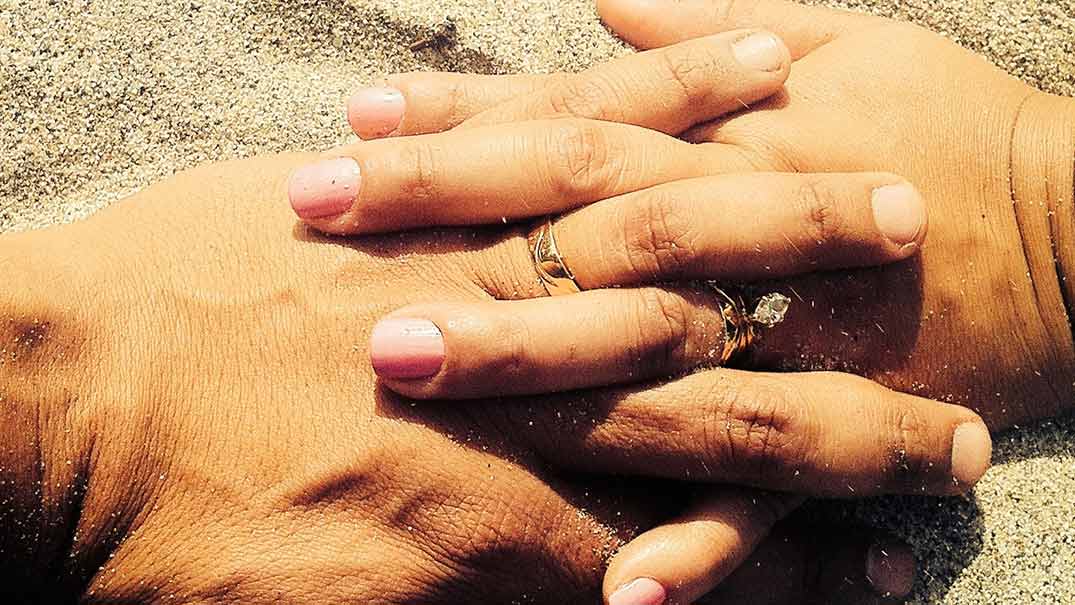I remember lining up in the kitchen with my two sisters at my mom’s command. Someone had done something they weren’t supposed to, and it was time to find out the crime and culprit. So, as the three of us stood there wide-eyed looking at my mom, she would simply say, “Who did it?” We would glance back and forth at each other, sometimes knowing the offender and other times not. She would ask again, but this time her tone carried a more serious note to it. No answer. “If someone doesn’t fess up, then you are all going to get in trouble.” There were plenty of times no one admitted to it, and we would all receive equal parts of the punishment.
It wasn’t that the guilty party was placing blame on the innocent, but at the same time, they weren’t taking personal responsibility. As a result, everyone suffered. It’s not all that different from marriage.
All too often when a situation arises, people get caught up in denying their culpability than just owning it. As a result, everyone loses in the marriage. Problems aren’t really solved. Situations aren’t taken care of. And there really is no growth and development individually or as a couple.
There’s something about taking personal responsibility that makes people run the other way. Perhaps it’s the feeling that they have conceded or lost if they acknowledge their part in the situation. Others may be oblivious to their own faults. Still others are just too focused on the part the other person played that they refuse to recognize their own guilt. Many people underestimate the power and significance of accepting personal responsibility.
Proportions Don’t Matter
Do you want to know the fastest way to diffuse an argument or dispute? Accept personal responsibility. That’s right, acknowledge the part that you have played in the situation and ask for forgiveness from the other person. You might be saying, “But, they are the one at fault!” That may be true. Your spouse may be 99.9% at fault, but that still leaves .1% that you are responsible for.
In every situation, each person plays a part. The proportion of fault is irrelevant. You are responsible for you, and no matter what the circumstance, there is a part that you played in it. If you are able to see that, not only will you grow as an individual, but your relationship will grow as well.
This doesn’t mean you allow yourself to become a doormat. No one is asking you to take responsibility for the entire situation or neglect discussing the issue at hand. What I am asking o of you is that you take a step back from time to time to ponder what part you are playing in the situation at hand.
Maybe you are instigating, aggravating, or provoking. Perhaps you are getting angry and saying things that are hurtful and unnecessary. It could be that you aren’t earnestly listening to what your spouse is saying with the mindset that you want to gain understanding and insight into what he/she is trying to communicate. Whatever it is, no matter how great or small, there is still some element you can take responsibility for.
Now What?
Recognizing the part you have played in a sticky situation isn’t the only step in the process to healing and growth. Professing it to your spouse (or the other party involved) is equally important. That means, you step up and tell him or her that you are aware that you weren’t perfect.
“Honey, I know things are getting a little heated. I just want to pause to say that I know I am getting emotional and not listening very well to you. Sorry for interrupting you; I’m sure that’s extremely frustrating. Please go ahead and try to help me understand what you are attempting to communicate right now.”
Saying something like the above statement can take an escalating argument back down to a level where you both are able to effectively navigate through the communication process. Taking personal responsibility usually encourages and allows the other person to calm down and reciprocate your approach. Acknowledging your part, openly professing that to your spouse, apologizing, and then proceeding with the conversation is a practical way to work through problems together.
Accepting personal responsibility takes a gracious, loving, and humble person. It’s not easy to admit that you were wrong – in a big or small way. Especially when you played a comparatively minute role in the conflict, it takes a big person to dig down deep and be a part of the solution instead of the ongoing problem.
The truth is that taking personal responsibility sometimes feels like you are just giving up or giving in. The reality though is just the opposite. When we take the humble, peace-making approach of recognizing our wrongs, we win and our relationship wins too. It diffuses, covers, encourages, grows, and heals. Don’t underestimate the power or significance of looking at yourself and stepping up to accept personal responsibility in the next conflict you encounter.
Copyright © 2011, Foundation Restoration. ALL RIGHTS RESERVED. No reproduction allowed without written permission from Foundation Restoration and/or the author.






Leave A Comment